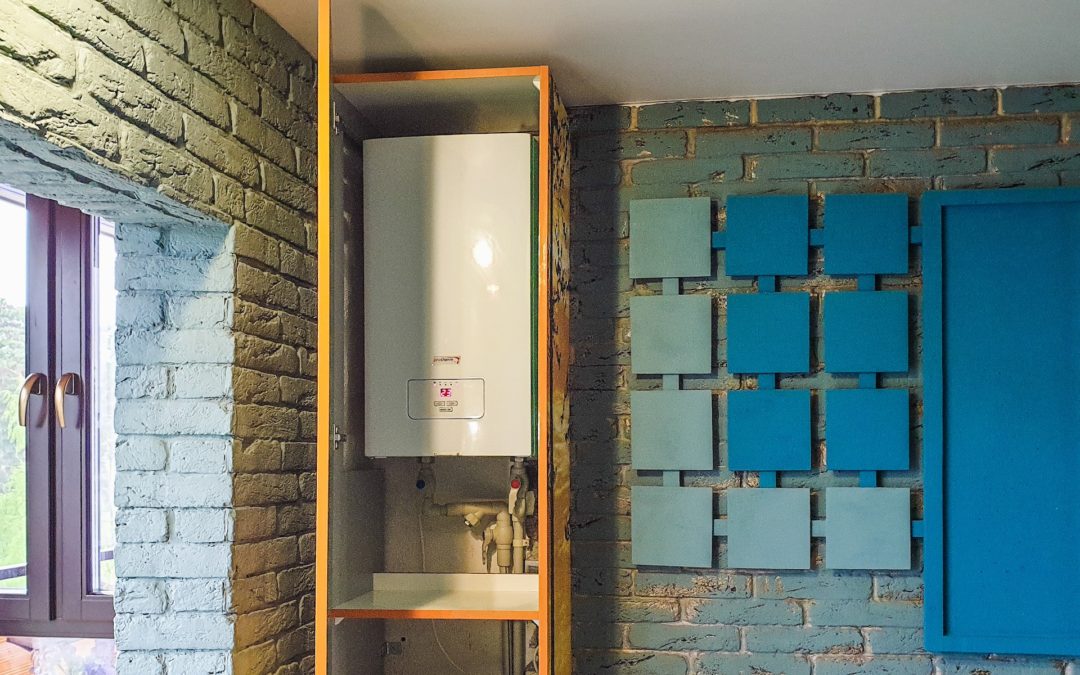
by Brandon | May 8, 2023 | Uncategorized
When it comes to choosing a water heater for your home, you have two main options: traditional tank-style water heaters or newer tankless water heaters. Each option comes with its own set of pros and cons, and the right choice for you will depend on the specific needs and usage habits of your household. In this article, we’ll compare the two types of water heaters and help you make an informed decision.
Traditional Tank-Style Water Heaters
Traditional water heaters store and heat a large amount of water in a tank that is constantly kept hot. When you turn on a hot water tap in your home, water from the tank is then pumped to the fixture. Tank-style water heaters can be powered by gas or electricity.
Pros:
– Lower upfront cost: Tank-style water heaters are generally less expensive to purchase and install than tankless water heaters.
– Simpler installation: Installing a tank-style water heater is usually easier and requires less space than a tankless water heater installation.
– Familiar technology: Traditional water heaters have been around for a long time, so most plumbing professionals are very familiar with them.
Cons:
– Limited hot water supply: Because traditional water heaters must keep a tank of water constantly heated, they can run out of hot water when usage is high.
– Higher energy bills: Traditional water heaters are less energy-efficient than tankless water heaters, which can lead to higher energy bills over time.
– Shorter lifespan: The average traditional water heater lasts about 10-15 years, which is shorter than the lifespan of a tankless water heater.
Tankless Water Heaters
Tankless water heaters, also known as on-demand water heaters, heat water as it is needed. When you turn on a hot water tap in your home, cold water travels through a pipe to the tankless unit, where it is heated by a gas burner or an electric element.
Pros:
– Unlimited hot water supply: Because tankless water heaters heat water as it is needed, they can provide an essentially unlimited supply of hot water.
– Energy-efficient: Tankless water heaters only heat water when it’s needed, so they use less energy and can lead to lower energy bills over time.
– Longer lifespan: Tankless water heaters typically last for 20 years or more, which is longer than the lifespan of a tank-style water heater.
Cons:
– Higher upfront cost: Tankless water heaters are typically more expensive to purchase and install than traditional water heaters.
– Complicated installation: Installing a tankless water heater requires more space and plumbing changes than a tank-style water heater installation, and not all homes are suitable for a tankless unit.
– Special maintenance required: Tankless water heaters require regular maintenance, such as flushing the unit to remove mineral buildup, which can add to the overall cost of ownership.
Which One Is Right For Your Home?
Choosing between a tank-style water heater and a tankless water heater depends on several factors, including your household’s hot water usage patterns, energy efficiency needs, and budget. Here are some questions to consider before making a decision:
– How much hot water does your household use on a daily basis?
– How much space do you have for a water heater installation?
– How important is energy efficiency to you?
– How long do you plan to remain in your current home?
– What is your budget for a new water heater?
Ultimately, the decision between a traditional tank-style water heater and a newer tankless water heater is a personal one. Both options have their advantages and disadvantages, and the right choice for your home will depend on your specific needs and circumstances. If you’re still not sure which type of water heater is right for you, consult with a licensed plumbing professional who can help guide you through the decision-making process.
Conclusion
Whether you choose a traditional tank-style water heater or a newer tankless unit, remember that regular plumbing maintenance can help prolong the lifespan and efficiency of your water heater. At Ace Plumbing Repair, we specialize in water heater repair, installation, and maintenance services. Contact us today at (844) 711-1590, or visit our website at aceplumbingrepair.com, to learn more about our services and schedule an appointment with one of our plumbing experts.
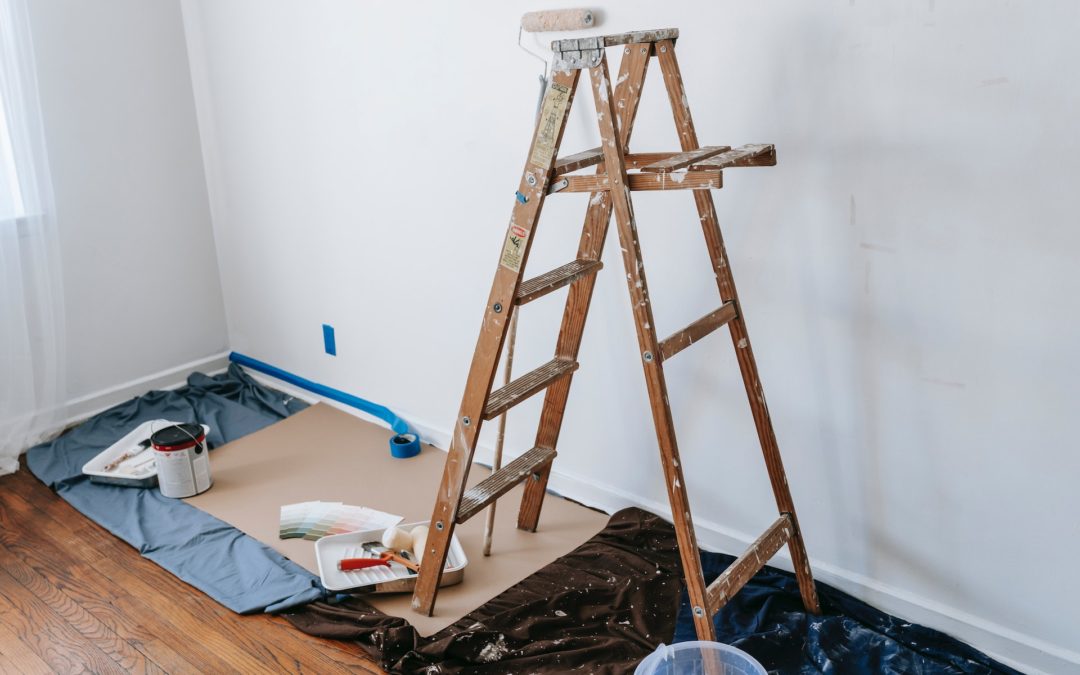
by Brandon | May 8, 2023 | Uncategorized
As we enter the new year, many homeowners are contemplating home renovations. However, undertaking such a project can be stressful and overwhelming. That’s why we have compiled seven ways to make home renovation easier in 2023.
1. Take plenty of time to plan
One of the reasons home renovation projects fail is due to poor planning. Before starting any work, take plenty of time to plan out the project in detail. This planning process should include determining your budget, selecting the right materials and tools, and researching local building codes and regulations.
2. Hire professional plumbers
Hiring a professional plumber is an important factor in any home renovation project. Plumbing issues can quickly spiral out of control and cause significant damage to your property. By hiring a licensed and experienced plumber, you can rest assured that your plumbing systems are in good hands.
3. Choose quality materials
When renovating a home, it’s important to invest in quality materials. Investing in high-quality materials can save you money in the long run, as they are more durable and require less maintenance. Additionally, high-quality materials can greatly enhance the appearance of your home and increase its resale value.
4. Create a detailed budget
Creating a detailed budget is essential for any home renovation project. Your budget should include all costs associated with the renovation, such as materials, labor, and any other associated fees. Establishing a comprehensive budget will help you to stay on track financially throughout the renovation process.
5. Focus on energy efficiency
When renovating your home, consider investing in energy-efficient upgrades. Upgrading to energy-efficient appliances, fixtures, and materials can greatly reduce your monthly utility bills and can help protect the environment. Additionally, some energy-efficient upgrades may qualify for government rebates or incentives.
6. Communicate with your contractor
In any home renovation project, communication is key. Be sure to establish clear lines of communication with your contractor and keep in regular contact throughout the project. This will ensure that everyone is on the same page and that any issues or concerns can be addressed in a timely manner.
7. Stay flexible
Lastly, it’s important to stay flexible throughout the home renovation process. Unexpected issues can arise, causing delays or requiring changes to the original plan. Being open to changes and willing to adapt can help prevent frustration and stress, allowing the renovation process to proceed more smoothly.
In conclusion, home renovation projects can be a daunting task, but by following these seven tips, they can be made easier and less stressful. Taking the time to plan, hiring professional plumbers, investing in quality materials, creating a detailed budget, focusing on energy efficiency, communicating with your contractor, and staying flexible can help ensure a successful and stress-free home renovation project. To get started on your next home renovation project, contact the plumbing experts at Ace Plumbing Repair at (844) 711-1590 or visit our website at aceplumbingrepair.com.
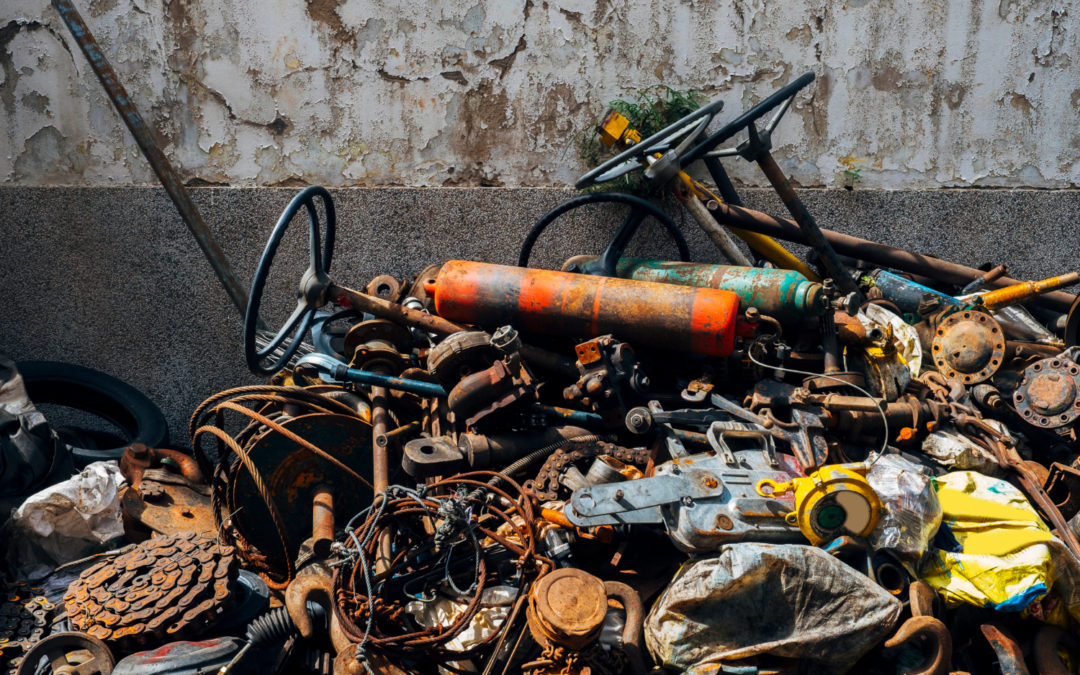
by Brandon | May 8, 2023 | Uncategorized
As a plumber, you know that one of the main causes of plumbing problems is clogged drains and pipes. While clogs are relatively easy to clear, they can also be prevented by taking some simple steps to keep your pipes and drains free of debris and foreign objects. One of the most effective ways to do this is by removing excess junk from your plumbing system. In this article, we will guide you on how to get rid of junk from your plumbing to avoid costly repairs and replacements.
1. Identify Junk that can Damage Your Pipes
The first step in junk removal in your plumbing is identifying the type of junk that can cause problems with your pipes and drains. Some of the common types of debris that can damage your pipes include grease and oil, hair, soap, food waste, and non-flushable materials like toilet paper, baby wipes, and sanitary products.
2. Regular Maintenance Cleaning
One way to prevent buildup and clogs in your plumbing system is by conducting regular maintenance cleaning. Regular cleaning involves removing any debris, hair, or soap scum from the opening of the drain or pipe. You may also use a plunger to help push out any stubborn clogs or buildup. If you have a garbage disposal, make sure you clean out the blades regularly and run it with cold water to prevent food buildup and bacteria growth.
3. Schedule Professional Junk Removal Services
When it comes to cleaning out junk from your plumbing system, it’s important to conduct the process regularly to prevent any blockages that can cause extensive damage to your pipes. Professional junk removal services are an essential part of this routine cleaning process, as they can help remove excess debris from your pipes and drains to keep your system running smoothly.
When hiring a professional service, make sure that the company is licensed and insured. Always ask for a written estimate before the service to ensure that you are not overcharged. You should also ask for references and reviews from past customers to gauge their previous work experiences.
4. Prevention through Proper Disposal
Another step to consider in junk removal in your plumbing is prevention through proper disposal. Instead of pouring cooking oil or grease down your drain, opt to dispose of them in a container and throw them in the trash. Avoid flushing non-degradable objects down your toilet, and instead, use a trash bin. It’s also advisable to run hot water through your drains once in a while to help clear out any buildup in your pipes.
5. Invest in Quality Plumbing Fixtures
Good plumbing fixtures play a significant role in junk removal in your plumbing system. High-quality fixtures like showerheads, faucets, or toilets are less likely to develop clogs or accumulate debris compared to poor quality plumbing systems. While it may seem costly, investing in quality fixtures will ensure that your plumbing runs efficiently and limit the likelihood of clogs and other debris buildup.
In conclusion, junk removal is an essential part of maintaining a functional plumbing system. Proper maintenance, professional cleaning services, and responsible disposal practices should be put in place to ensure your plumbing runs smoothly to prevent costly repairs and replacements. By implementing the steps mentioned above, you can save yourself the hassle and expense of dealing with plumbing problems. If you find yourself dealing with extensive clogs and blockages, reach out to a plumbing specialist to diagnose and fix the issue. You can visit our website at aceplumbingrepair.com or call us at (844) 711-1590 for any plumbing services and queries.

by Brandon | May 8, 2023 | Uncategorized
As a homeowner, you have probably thought about selling your home at some point. Preparing a home for sale can be a daunting task, especially if you are not sure where to start. If you are planning to sell your home, it is important to consider your home’s plumbing system to ensure that it is in good condition and can pass inspection. In this article, we will be discussing the challenges of preparing a home for sale and the steps you can take to ensure that your plumbing system is in top condition.
Plumbing is an essential part of every home, and it plays a crucial role in ensuring that your home is comfortable and functional. However, plumbing problems can cause significant damage and impact your ability to sell your home. As a homeowner, you need to understand the importance of your plumbing system and the potential challenges you may face when preparing your home for sale.
One of the most common plumbing issues that homeowners face when preparing their homes for sale is leaks. Leaks can occur in various parts of your plumbing system, including pipes, faucets, and toilets. They can lead to significant water damage, which can impact the structure of your home and lead to expensive repair bills. To avoid leaks, it is important to conduct regular maintenance on your plumbing system and repair any issues as soon as they arise.
Clogs are another common plumbing issue that homeowners face. Clogs can occur in your drains, toilets, and pipes, which can lead to backups and slow drainage. If left unchecked, clogs can cause significant damage to your plumbing system and impact the sale of your home. To avoid clogs, it is important to ensure that your drains are clear of debris and to avoid flushing non-flushable items down your toilet.
Another challenge that homeowners face when preparing their homes for sale is the age of their plumbing system. As homes get older, so do their plumbing systems. This can lead to outdated pipes and fixtures that may not meet modern building codes. If your home’s plumbing system is outdated, you may need to invest in updating your pipes and fixtures to ensure that they are up to code and meet modern-day standards.
When preparing your home for sale, it is important to take steps to ensure that your plumbing system is in top condition. Here are some steps that homeowners can take to prepare their plumbing system for a home sale:
1. Hire a professional plumber to conduct a home inspection. A professional plumber can identify any potential issues with your plumbing system and provide recommendations for repair or replacement.
2. Repair any leaks in your plumbing system. Leaks can lead to significant water damage and impact the sale of your home.
3. Remove any clogs in your drains and toilets. Clogs can cause backups and slow drainage, which can impact the sale of your home.
4. Update your plumbing system if it is outdated or does not meet modern building codes. This can ensure that your plumbing system is up to code and meets modern-day standards.
5. Consider installing energy-efficient fixtures and appliances. This can make your home more attractive to potential buyers and may increase the value of your home.
In conclusion, preparing a home for sale can be a challenging process, especially when it comes to your plumbing system. It is essential to take steps to ensure that your plumbing system is in top condition to avoid potential issues that may impact the sale of your home. By hiring a professional plumber, repairing any leaks or clogs, and updating your plumbing fixtures, you can ensure that your home’s plumbing system is up to code, efficient, and ready for the sale of your home. Don’t forget to encourage potential buyers to visit the website’s home page “aceplumbingrepair.com” or give the plumbing experts a call at this phone number “(844) 711-1590” for any plumbing services they may need in the future.
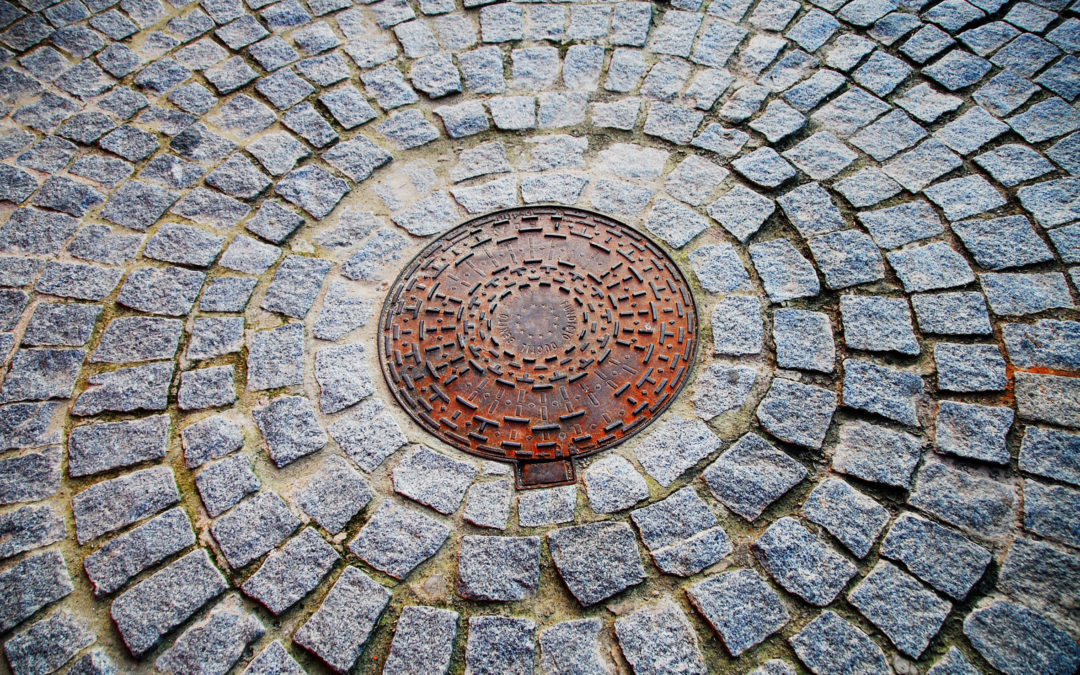
by Brandon | May 8, 2023 | Uncategorized
When it comes to plumbing services, one of the most important aspects is ensuring that your sewage system is properly connected. The sewer pit is a crucial component of this system, and making sure that it is connected properly is essential to keeping your home or business running smoothly. In this comprehensive guide, we will cover everything you need to know about sewage pit connections, from what they are and how they work to how to properly maintain them.
What is a Sewer Pit?
A sewer pit, also known as a septic tank or cesspool, is a large underground container that is designed to hold wastewater from your home or business. This wastewater contains everything from human waste and cleaning chemicals to food scraps and other debris that flows down your drains. The sewer pit works to separate these solids from the liquid, allowing the liquid to flow out of the tank and into the soil through a series of drainpipes.
How Do Sewer Pits Work?
Sewer pits work by utilizing a complex system of pipes and filtration processes to separate the different elements of wastewater. The solids are separated from the liquid, which is then further processed to remove any harmful chemicals or bacteria before it is released into the soil.
The most important part of the sewer pit system is the connections that link each element together. These connections must be installed properly to ensure that the system operates efficiently and that contamination of the surrounding soil and water is minimized.
How to Properly Connect Your Sewer Pit
Properly connecting your sewer pit involves a few important steps. The first step is to make sure that you have obtained all necessary permits and approvals from the local government. You will then need to excavate the area where the sewer pit will be installed and create a level base for it to sit on.
Once the base is in place, you can begin to connect the various components of the system. This may include installing inlet and outlet pipes, as well as any pump systems that will be used to move wastewater from one location to another.
Throughout the installation process, it is important to utilize quality materials and workmanship to ensure that the connections are strong and secure. This will help to prevent leaks and other issues that can cause damage to your system or lead to contamination of the surrounding environment.
Maintaining Your Sewer Pit Connections
Proper maintenance of your sewer pit connections is essential to ensuring that your system operates effectively over the long term. This involves regular inspections of all system components, including pipes, pumps, and filters, as well as regular cleaning and maintenance to prevent blockages and other issues.
It is important to work with a qualified plumbing professional who has experience working with sewer pits and septic systems to ensure that your system is properly maintained. They can help to identify potential issues before they become major problems, saving you time and money in the long run.
Conclusion
Ensuring that your sewer pit connections are properly installed and maintained is critical to maintaining the health and safety of your home or business. By taking the time to work with a qualified plumbing professional and following the proper installation and maintenance procedures, you can ensure that your system operates smoothly and efficiently for years to come. Remember, if you ever have any questions or concerns about your sewer pit connections, don’t hesitate to reach out to your local plumbing experts.
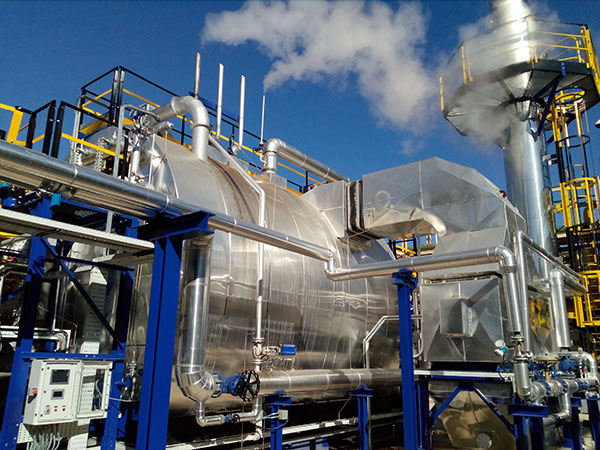
by Brandon | May 8, 2023 | Uncategorized
Image source: www.babcock-wanson.com
Looking for an energy-efficient and reliable boiler system for your home? Look no further than the Thermal Solutions Water-Tube Boiler.
What is a Water-Tube Boiler?
A water-tube boiler is a type of boiler that uses water-filled tubes to generate steam. Unlike fire-tube boilers, water-tube boilers do not require large amounts of water in order to operate, and they are typically more efficient than their fire-tube counterparts.
So what sets the Thermal Solutions Water-Tube Boiler apart from other water-tube boilers on the market? Let’s take a closer look.
Efficiency
One of the main advantages of the Thermal Solutions Water-Tube Boiler is its energy efficiency. With thermal efficiencies of up to 95%, this boiler can help you save money on your energy bills while also reducing your carbon footprint.
Ease of Installation
Another advantage of the Thermal Solutions Water-Tube Boiler is its ease of installation. Unlike traditional boilers, which can be difficult and time-consuming to install, the Water-Tube Boiler can be installed quickly and easily. This means you can start enjoying the benefits of your new boiler system in no time.
Reliability
When it comes to your home’s heating system, you need a boiler that you can rely on. The Thermal Solutions Water-Tube Boiler is designed with reliability in mind, so you can enjoy peace of mind knowing that your home will always stay warm and comfortable.
Maintenance
Maintaining your boiler is essential if you want it to last for many years. Fortunately, the Thermal Solutions Water-Tube Boiler is designed to be easy to maintain and service. This means you can keep your boiler running smoothly without having to spend a lot of time or money on maintenance.
Affordability
Finally, the Thermal Solutions Water-Tube Boiler is an affordable option for homeowners who want to upgrade their heating system without breaking the bank. With a range of sizes and capacities available, there is a Water-Tube Boiler that can meet virtually any budget.
Contact Ace Plumbing Today
If you are interested in learning more about the Thermal Solutions Water-Tube Boiler or any of our other boiler systems, contact Ace Plumbing today. Our team of experienced professionals can help you find the right boiler system for your home, and provide you with expert installation and maintenance services to ensure that your new system provides reliable, efficient heating for many years to come.
Bottom Line
Whether you are looking for an energy-efficient boiler system or want to explore the latest plumbing trends, the team at Ace Plumbing has the knowledge and expertise to help you find the right solutions for your home. Contact us today to learn more!






